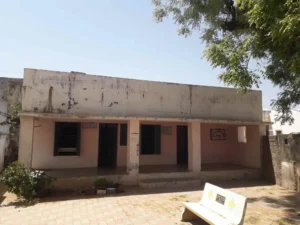Patiala, June 30: Responding to the discontent brewing for years, government doctors working in rural Punjab have declared July 1 — observed across the country as Doctors’ Day — as ‘Punjab Rural Health Crisis Day’, marking their protest against what they call the “deliberate and sustained collapse” of healthcare infrastructure in the state’s villages.
The call, given by the Rural Medical Services Association (RMSA), Punjab, comes amid mounting frustration over lack of recruitment, critical shortages of medicines, and alleged policy discrimination against doctors serving in the countryside.
The association has alleged that no new appointments of doctors, pharmacists, or Class IV staff have been made in rural dispensaries in the past ten years. Moreover, there has been no new medicine supply for three years, while essential drugs have only trickled in since 2017.
“This has forced poor villagers to purchase life-saving drugs from private chemists,” the association said in a statement.
Speaking to reporters, Dr Aslam Parvez, RMSA president and national executive head of the All India Government Doctors’ Federation, said the state government appears keen to “hand over rural dispensaries to ANMs and general nurses instead of appointing qualified doctors.”
“This is not just administrative apathy — it’s structural injustice,” he said.
“The result is a collapse in public trust and unbearable pressure on city hospitals, where patients from rural areas are now crowding in.”
Dr Parvez also flagged the over-reliance on contractual doctors in Aam Aadmi Clinics, saying these centres are being run on “fragile foundations” with no job security, raising concerns over long-term continuity and care.
He accused top officials of withholding ground realities from the Chief Minister. “The CM is being kept in the dark while village dispensaries rot,” he said.
The association pointed out that in 2006, 1,186 rural dispensaries were transferred to the Rural Development Department to better align healthcare delivery with village needs. However, in 2021, the Health Department took them back — but retained just 530 sanctioned doctor posts, leading to what doctors call a systematic dismantling of rural health services.

Slamming the government’s 2030 plan to send MBBS graduates to villages through a bond service policy, Dr Parvez said, “It’s a gimmick that will not survive judicial scrutiny. If the government is serious, it should start with the 2025 MBBS batch, offer fee waivers, and sign direct contracts for rural postings.”
Doctors are also upset over a new government notification that extends Postgraduate incentive marks — previously reserved for those working in rural dispensaries — to doctors in urban hospitals and jails.
“This is open bias,” said a senior member of RMSA. “While city doctors earn from private clinics and please higher-ups, those struggling in villages are being denied even basic incentives.”
‘Symbolic Loot’ of Govt Drug Stores From August 15
In a dramatic move, the association has announced the launch of a statewide agitation from August 15, with the opening act being a symbolic ‘loot’ of government medicine warehouses.
Dr Rajesh Sharma, RMSA General Secretary, said: “This is not theft — this is a desperate message to a sleeping state. All unused medicines in warehouses should be declared the right of abandoned rural dispensaries.”
Whether the July 1 protest triggers a course correction in government policy or further deepens the rural-urban healthcare divide remains to be seen.


